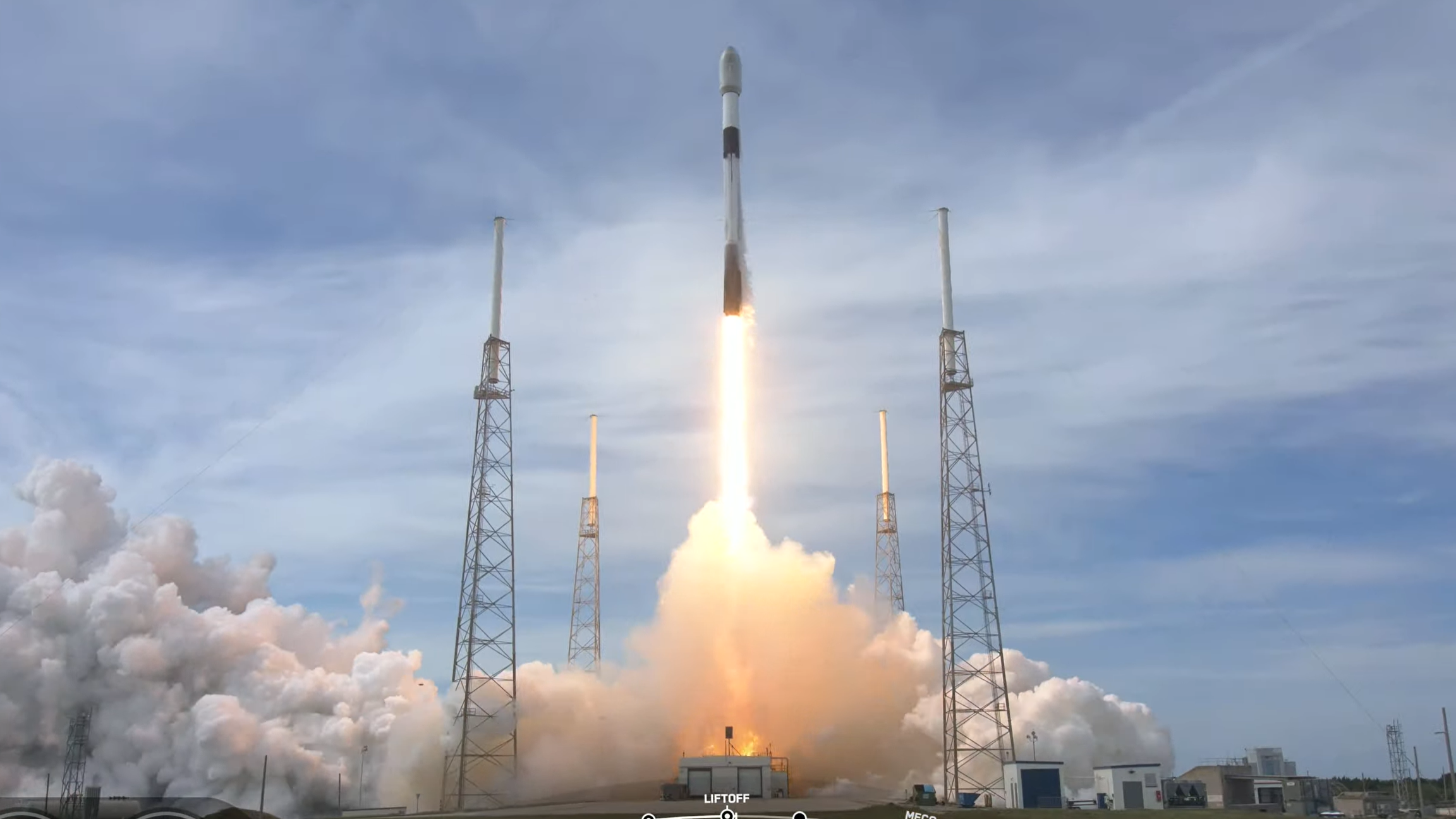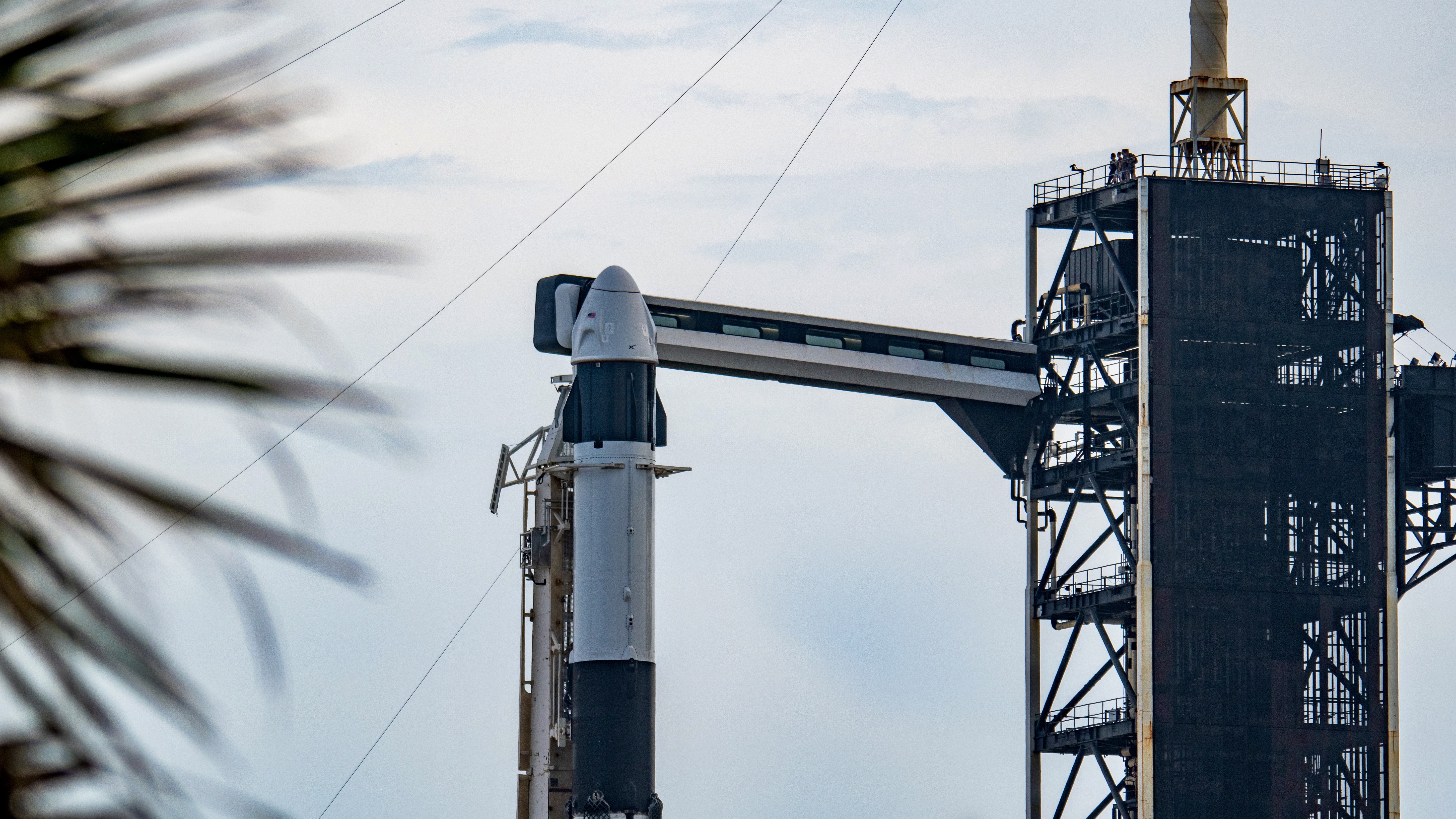SpaceX launches 21 Starlink V2 satellites, lands rocket at sea
This was SpaceX's 25th mission in 2023.
SpaceX carried another batch of Starlink satellites on Wednesday (April 19).
A Falcon 9 rocket carrying 21 of SpaceX's new Starlink "V2 mini" satellites took off at 10:31 a.m. ET (1431 GMT) from Space Launch Complex 40 at Florida's Cape Canaveral Space Force Station, after two slight delays earlier in the day for undisclosed reasons.
About 8 minutes and 26 seconds after launch, the rocket's first stage landed on the autonomous SpaceX droneship A Shortfall of Gravitas nearby in the Atlantic Ocean, within view of a livestream from SpaceX.
It was the space company's 25th launch of 2023 so far, according to statistics provided in the broadcast, along with this Falcon 9 first-stage booster's eighth launch overall.
Related: Starlink satellites: Everything you need to know

SpaceX's V2 mini Starlink satellites are designed to be more powerful than earlier iterations, allowing for more broadband capacity than previous generations, according to the company. They also feature Hall thrusters, which are electric propulsion systems that offer over twice the amount of thrust compared to those aboard first-generation Starlink satellites, SpaceX has said.
SpaceX already has over 4,000 Starlink satellites in orbit, but has plans to greatly increase that number. The company has regulatory approval to launch up to 12,000 more Starlink craft and is seeking permission to add a whopping 30,000 more.
Get the Space.com Newsletter
Breaking space news, the latest updates on rocket launches, skywatching events and more!
While the satellites will help bring broadband internet to remote or underserved locations around the globe, that amount of satellites also comes with its downsides, with astronomers complaining of Starlink craft interrupting science observations.
Wednesday's mission will mark the 25th flight for the company so far in 2023. The first stage booster flying this mission previously launched the private Hakuto-R rover to lunar orbit and three Starlink missions, in addition to other payloads.
When it comes to upcoming SpaceX launches, however, all eyes are on the first space launch of the company's massive Starship rocket, which is currently targeted for Thursday (April 20). When Starship launches on the landmark test flight, it will assume the title of the world's most powerful rocket and pave the way for a new era of human spaceflight.
This story was updated April 19 at 7:50 a.m. EDT and at 9:15 a.m. EDT to reflect adjusted launch times, and at 10:40 a.m. EDT to reflect the successful launch.
Follow us @Spacedotcom, or on Facebook and Instagram.
Join our Space Forums to keep talking space on the latest missions, night sky and more! And if you have a news tip, correction or comment, let us know at: community@space.com.

Brett is curious about emerging aerospace technologies, alternative launch concepts, military space developments and uncrewed aircraft systems. Brett's work has appeared on Scientific American, The War Zone, Popular Science, the History Channel, Science Discovery and more. Brett has English degrees from Clemson University and the University of North Carolina at Charlotte. In his free time, Brett enjoys skywatching throughout the dark skies of the Appalachian mountains.
